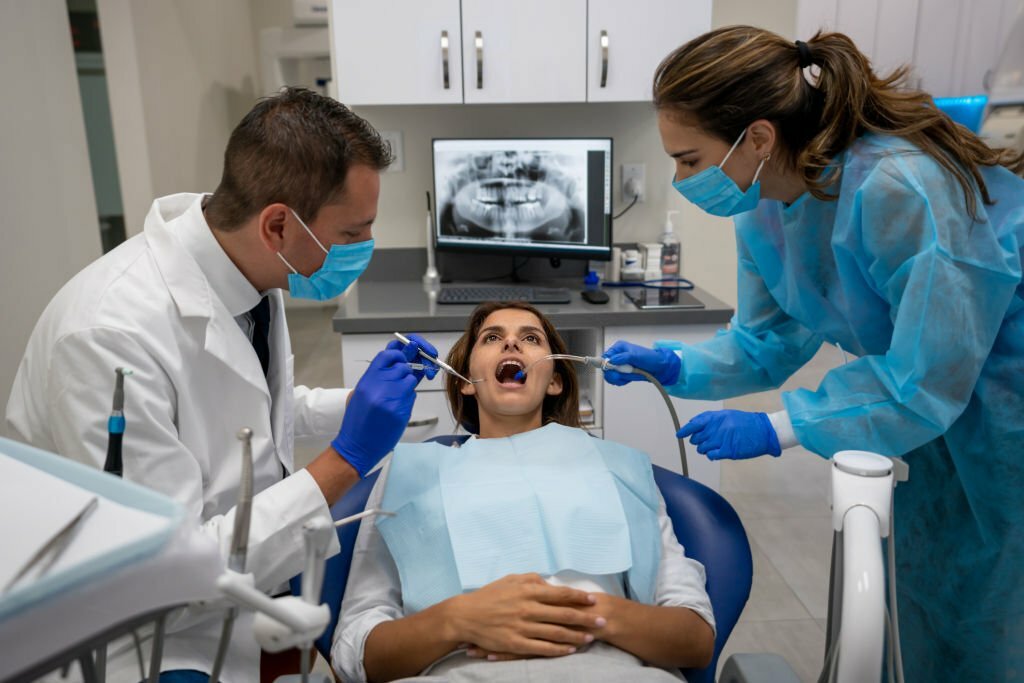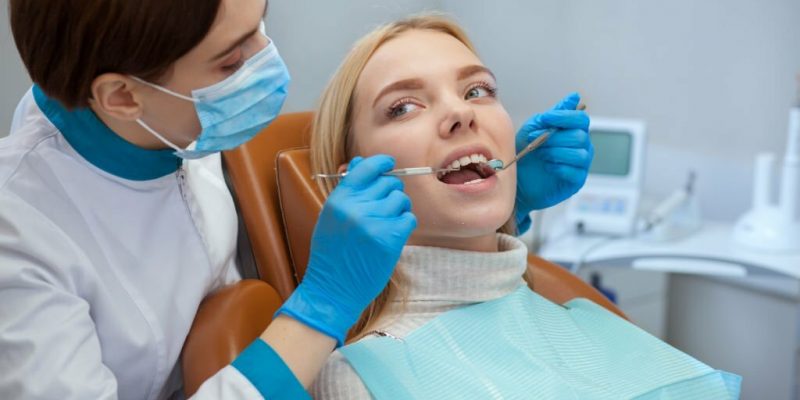Sports activities contribute to one-third of dental treatment emergencies, making it an essential consideration for many. However, suitable preventive measures can help reduce the risk of sports-related dental injuries.
This blog will look at some of the most common sports-related dental injuries and determine ways to manage them better.
So continue reading as we explore special circumstances when you might require sports-related emergency dental care.
Introduction:
Most dentists agree that 30% of dental injuries result from sports-related activities. About 80% of these cases result in at least one or more front teeth being lost or damaged. This also includes injuries around the cheek area and the tongue.
These injuries can vary based on severity, but the right emergency dental care at the right time can help better protect your smile.
This should not be very challenging as long as you know different sports-related dental injuries and ways to treat them. So, let’s take a closer look at these situations in the following sections.
What Are Sports-Related Dental Emergencies?
Sports-related dental emergencies are any unexpected dental injuries that require urgent medical attention. These injuries are prevalent among athletes playing contact sports and can range from severe toothache to broken teeth to swelling in the mouth.
It is important to note that not every dental complication qualifies as a sports-related dental injury. For instance, if you have cavities in your teeth, it is fair to conclude you don’t need sports emergency dental care. But any symptoms indicating you have a sports-related dental injury call for prompt action to ensure speedy recovery.

Common Sports-Related Dental Injuries
Playing sports can unleash unmatched adrenaline but can also result in some injuries, prompting the need for emergency dental care USA. Some of the most common sports-related dental injuries include;
-
Fractured Tooth Roots
You might have a fractured tooth root if you are hit hard in the mouth while playing sports. These are the cases where the crack originates right from the root, reaching the tooth. It is not always easy to detect the symptoms of a fractured tooth root since they are mostly hidden below the gums.
But these injuries become more apparent when your injection grows into a pulp on the tooth. This will require emergency dental work, such as a root canal treatment, to prevent the injection from spreading further.
-
Cracked Tooth
A chipped or cracked tooth is another common sports-related dental injury involving a crack or split beginning at the crown and extending down to the tooth. It can cause severe discomfort with evident sharp pain with every bite down.
In these cases, you can access dental treatment emergency where your dentist will repair the crack with a crown, filling it with dental bonding. However, you might require tooth extraction or root canal treatment in more severe cases.
-
Knocked Out Tooth
Face and head injuries are common in contact sports, often resulting in a knocked-out tooth. In these cases, you first need to try to locate the tooth, pick it up by the crown without touching the roots, and rinse it before placing it back into the socket. You must bite it down gently until the tooth is back into the socket.
If this does not work for you, it is time to check your emergency dental coverage and schedule an appointment with your dentist as soon as possible. If you can avail of the right treatment at the right treatment, fixing your knocked-out tooth should not be very challenging.
-
Tooth Intrusion
If you ever wonder what qualifies as a dental emergency, tooth intrusion is certainly one of the most common problems. This generally happens when external trauma pushes your tooth back into the jawbone. The treatment of these injuries varies typically based on their severity and the patient’s age.
But with the proper emergency dental care, the chances of your tooth re-erupting are significantly high. Surgical procedures also facilitate effective tooth re-eruption for people dealing with sports-related dental injuries.
Best Ways To Prevent Sports-Related Dental Injuries
Now that you have a better understanding of what is a dental emergency it is time you familiarize yourself with all necessary preventive measures. These measures can help you avoid all sorts of unexpected sports-related dental injuries. Some of the best ways to prevent emergency sports-related dental injuries include:
-
Wear A Mouthguard
Wearing a mouthguard while playing contact sports is your best bet to avoid claiming emergency dental insurance. You can use a customized mouthguard to ensure adequate protection without unnecessary discomfort. Mouthguards also play an essential role in reducing the risk of concussions and preventing any lacerations within the mouth.
-
Eat Healthy
As apparent as it may sound, there is no better alternative to a healthy diet for strong teeth. But besides that, athletes must always be mindful of the type of food they eat before playing sports. It is better to avoid sticky and hard food as they can cause more damage to your teeth upon external trauma during the game.
-
Maintain Appropriate Oral Hygiene
Brushing your teeth twice a day, using fluoride toothpaste, and flossing regularly are some of the most common practices for maintaining appropriate oral hygiene. But this becomes even more important when you are an avid sports player.
Maintaining appropriate oral hygiene helps enhance your teeth’s health and strength. This makes it far less susceptible to tooth-related complications that can increase your chances of succumbing to sports-related dental injuries.
Takeaway
- 30% of dental injuries are a result of sports-related activities
- Fractured tooth roots, cracked teeth, knocked-out teeth, and tooth intrusion are some of the most common sports-related dental injuries.
- If you are experiencing any symptoms of sports-related dental injuries, it is essential you visit your dentist as soon as possible and avail of necessary treatment.

